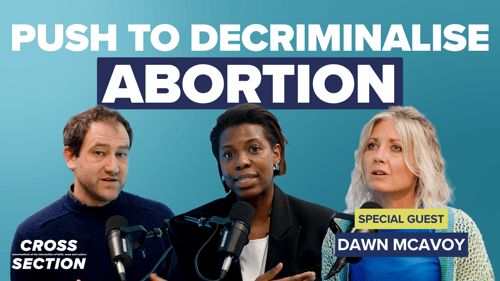May was a discouraging month for those who value the legal protection of life. As attention continues to focus on the Assisted Dying Bill, a new threat has emerged.
Labour MPs Tonia Antoniazzi and Stella Creasy have each tabled amendments to the Criminal Justice Bill – New Clause 1 and New Clause 20 – aiming to fully decriminalise abortion in England and Wales. As Christians, we believe every human being bears God’s image and has inherent dignity from conception to natural death. Jesus’ own conception affirms the value of both lives in pregnancy.
Antoniazzi’s New Clause 1 amendment would disapply criminal law relating to sections 58 and 59 of the Offences Against the Person Act 1861 and the Infant Life (Preservation) Act 1929. In effect, this would legalise a self-induced abortion outside of any healthcare framework, at all stages of pregnancy, right up to birth. Over 115 MPs have expressed support.
Creasy’s New Clause 20 amendment goes even further. It seeks full decriminalisation of abortion up to and including birth, for any reason. In addition, it would repeal legislation against concealing the birth, death (encapsulating both natural or deliberate) and body of a baby. It also aims to establish abortion as a human right. Over 100 MPs back it. Removing abortion from criminal law devalues unborn life by removing explicit legal protections for every unborn child.
1. These amendments risk harming vulnerable women.
Proponents argue that decriminalisation protects vulnerable women, such as those facing domestic abuse or mental health struggles. But legal boundaries are not merely punitive – they’re protective.
Decriminalisation does not address why a woman is vulnerable, or solve the problems which make a pregnancy crisis. Removing abortion from the criminal code would eliminate safeguards that help prevent dangerous late-term or unsupervised procedures. This could increase, not reduce, harm – exposing more women to exploitation, isolation, and trauma.
There is reason for encouragement. This morning, a new amendment was tabled by over 30 MPs, New Clause 106, which would require an in-person consultation before abortion takes place. This would help protect women and children from dangerous late-term home abortions and is supported by two-thirds of women according to Telegraph polling.
2. The public does not support unrestricted abortion.
While abortion has long been treated as a settled issue in Britain, the public is clear that these proposed measures are radical and out of step. A Whitestone Insight poll found 77% of British adults believe abortions of healthy unborn babies over 24 weeks should remain illegal. A further 71% felt that up to a one‑year jail sentence for illegal abortions between 32 – 34 weeks was “about right or too short.”
Creasy’s proposal would legalise abortion for any reason, including sex-selective abortion. Yet a ComRes poll showed only 1% of women support abortion up to birth for any reason, while 70% would prefer reducing the current 24-week limit to 20 weeks. The UK is already an outlier in Europe. Our 24-week limit is double that of Germany and Italy (12 weeks) and significantly higher than France and Spain (14 weeks).
On Tuesday, a clip from Times Radio went viral after Tonia Antoniazzi, the sponsor of the abortion decriminalisation bill, was interviewed about her proposed amendments. When asked, “Any woman could end a pregnancy at any time – 35 weeks, 36 weeks, 37 weeks – without committing an offence. And you are comfortable with that?” Antoniazzi confidently replied that she was. Her response triggered a backlash on social media, with even some pro-choice commentators expressing shock at her admission. It serves as a stark reminder that one does not need to be pro-life to recognise the deeply troubling reality of aborting a nearly full-term unborn baby.
3. These amendments erase legal recognition of unborn life.
A deep inconsistency exists in our laws. Last year, baby loss certificates were introduced for parents who lose a pregnancy before 24 weeks – a positive step acknowledging the emotional reality of such loss. Yet the same unborn children could be aborted legally with no recognition of their value.
Even more paradoxically, unborn animals receive greater protection in law than unborn children. A parliamentary report on foetal sentience noted that “it surely cannot be right that the killing of ‘protected animals’… is subject to tighter legal regulation dealing with both the place where they are killed and the manner of their killing, to ensure that it is humane, than the law governing the lawful killing of human foetuses.”
These startling discrepancies should call us to action. There is something deeply anti-human that rights are currently being denied to unborn children that are enjoyed by animals. We have an opportunity to correct wrongs in speaking against these amendments. We would greatly encourage you to write to your MP to ask them to vote against NC1 and NC20.
You can also catch up on our Cross Section episode where the team outline concerns about decriminalising abortion.

Both Lives
A pro-women and pro-life movement – imagining a people and place that values the life and health of women and unborn children, and pursues the wellbeing of both



